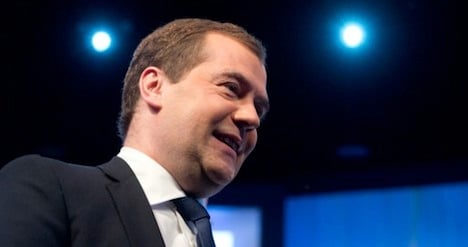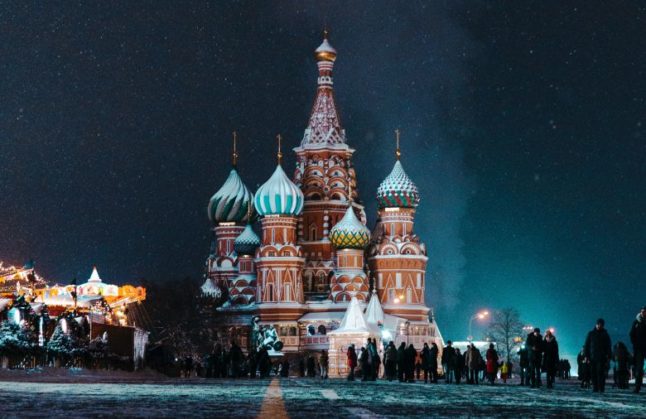Speaking at the World Economic Forum (WEF) in the Swiss mountain town, Medvedev highlighted Russia's economic performance — including 3.5 percent growth last year — and said the country had set ambitious targets for boosting foreign investment.
"Russia is an open country, safe, we are part of the global economy and global political processes," Medvedev said.
He hopes to see investment grow by 10 percent annually to help Russia reach a target of five percent annual growth.
Russia, which is leading the G20 this year, is on a major charm offensive in Davos, sending its biggest-ever delegation to the annual gathering of political and business leaders in the Swiss ski resort.
In addition to Medvedev, a slew of senior Russian officials and top business executives are on hand to meet and mingle with the 2,500 participants.
But amid all the gladhanding, a new WEF report that involved more than 350 experts has raised difficult questions for Russia's boosters.
The report, "Scenarios for the Russian Federation," laid out pessimistic possibilities for the country's future, with lower energy prices leading to social instability and higher ones to complacency about reforms.
"The Russian economy is at a crossroads," the report said.
"Shifts in the global economy are affecting Russia due to its strong reliance on oil and gas exports," it said.
"Revitalizing its economy requires significant changes."
It highlighted persistent concerns about Russia's reliance on energy exports, growing discontent over its wealth gap and "high levels of corruption".
"Corruption and undue influence are among the biggest problems for doing business in Russia," the report said.
"Most international assessments rank Russia as one of the most corrupt major economies in the world."
In his speech, Medvedev dismissed the report's bleak forecasts as "unrealistic" and insisted Russia was serious about making reforms.
"The top priority of the Russian government, my top priority as prime minister, would be increasing efficiency of all public bodies," he said.
"It would be wrong to say we are standing still.," Medved said.
"I believe we have already achieved much of what we planned," he said, pointing to the stabilization of Russia's population decline and its joining of the World Trade Organization.
"We have very ambitious goals in the investment field, to increase the volume of investment from 20 to 25 percent of GDP, to increase investment in transportation, in energy infrastructure . . . and foreign direct investment would be instrumental in achieving this goal."
Speaking at a round-table discussion on the report, the head of Russia's largest bank Sberbank, German Gref, said it reflected a wider image problem damaging the country.
"What we need is to improve our image, because we are far better than we look" in international business rankings of countries, he said.
"Russia has potential beyond these risks, huge potential for growth," Gref said.
"In Russia there is a huge opportunity and a vast market with all of its resources to really get very high returns."
Others on the panel said it was key for Russia to push ahead with reforms and deal with fundamental problems if it wants to improve its image and attract investment.
"The failure to make reforms would be a burden on businesses . . . and would result in the stagnation of the Russian economy," former finance minister Alexei Kudrin said.



 Please whitelist us to continue reading.
Please whitelist us to continue reading.
Member comments